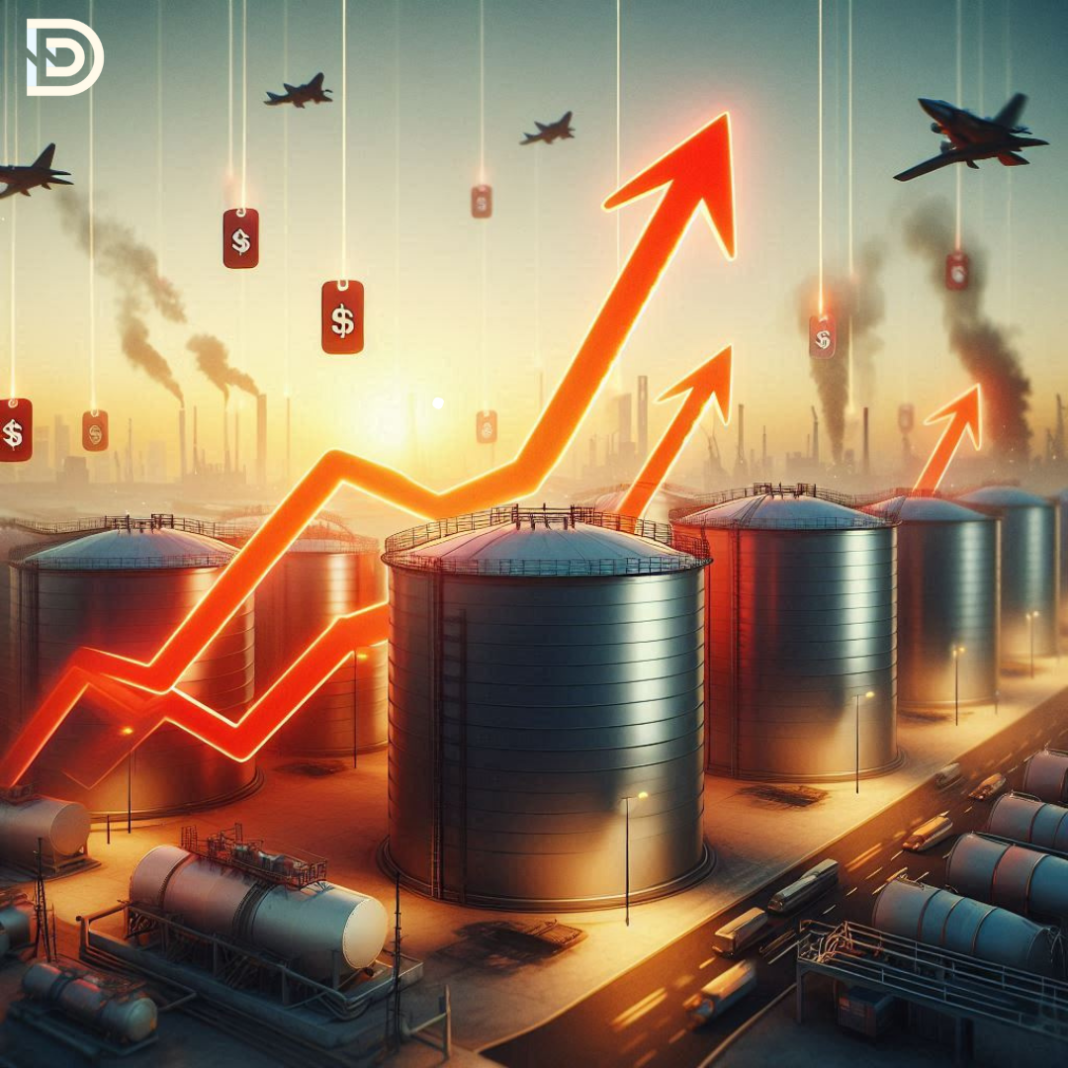On Friday, oil prices shot up more than 6%, marking one of the biggest daily jumps seen in years. This sharp increase happened after Israel launched a surprise strike on Iran. The move immediately raised fears around the world, especially about oil supplies coming from the Middle East.
A Sudden Rise in Oil Prices
Brent crude, a major type of oil used around the world, rose by $4.60 to reach $73.96 per barrel. At one point during the day, it touched an even higher price of $78.50 — its highest since January. Similarly, U.S. West Texas Intermediate (WTI) crude jumped by $4.99 to reach $73.03 per barrel, with a high of $77.62 earlier in the day. This jump in prices is the biggest single-day increase since the Russia-Ukraine war began in 2022.
This sudden movement in the oil market has caused investors and governments to become extremely alert. When a major event like this happens in the Middle East — a region that plays a big role in the world’s oil supply — it makes markets nervous. The fear is that oil supplies might get interrupted if tensions rise further.
What Happened Between Israel and Iran
According to reports, Israel launched a wave of airstrikes on Iran targeting nuclear facilities, missile factories, and military bases. These attacks happened early Friday and are being described as the beginning of a longer mission to prevent Iran from developing nuclear weapons.
This event has created shockwaves across the globe, especially in energy markets. Iran’s top leaders responded strongly, warning that Israel would face serious consequences for its actions. These warnings raised fresh fears that the situation could get worse and might lead to more fighting.
Even though these attacks were major, there have been no reports yet of any damage to oil production facilities in Iran. But traders and experts are keeping a close watch on how Iran might respond. Many are worried that Iran could take action that affects the Strait of Hormuz — a very important waterway through which nearly 20% of the world’s oil passes every day.
If anything happens to block that passage, it could lead to delays or stoppages in oil shipments. That’s one of the reasons oil prices are going up — not because there’s less oil now, but because people are scared there might be less soon.
Global Reactions and Worries
As the news spread, financial markets around the world reacted instantly. Stock prices fell, especially in Asia and the U.S., as investors moved their money to safer places like gold and the Swiss currency. This is a common reaction when global events seem risky.
Oil traders in major hubs like Singapore said it’s still too early to tell if oil supplies will actually be disrupted. However, many agree that fear is playing a big role in the price hike. If the situation remains tense or gets worse, especially with possible U.S. involvement, prices could keep rising.
🇮🇱 Operation Rising Lion: Israel’s Direct Hit on Natanz Cripples Iran’s Nuclear Core
Some analysts say the market has already added about $10 per barrel in the past three days, just from worry. They note that the price surge hasn’t been caused by a real shortage yet — it’s mainly fear-based. Still, in situations like this, fear can move markets just as much as actual events.
Meanwhile, global leaders are trying to calm things down. While some political figures said their country was not involved in the Israeli strike, they also urged Iran not to attack U.S. interests or citizens in the region. Governments are now watching closely to see if the situation cools down or gets more dangerous.
